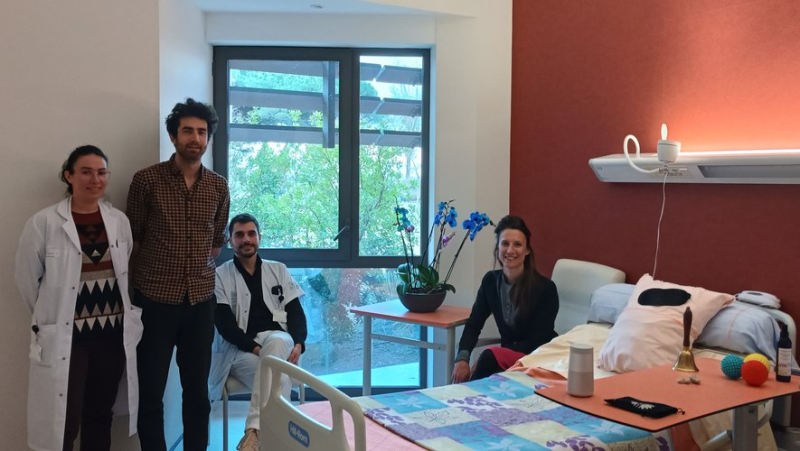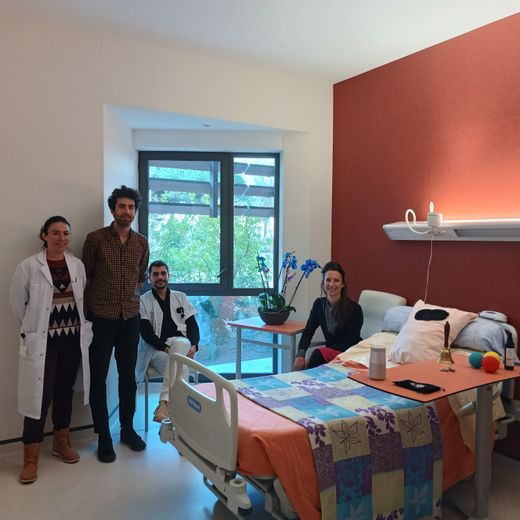Psychedelics to fight depression in alcoholism: Nîmes University Hospital launches a pilot study


L'équipe de la psychiatre Amandine Luquiens à l'hôpital du Grau-du-Roi.
Trente patients suivis en addictologie entrent dans une étude pilote sur les effets de la psilocybine.
Hallucinogenic mushrooms to fight depression in alcohol withdrawal ? At Nîmes University Hospital, the addiction department is launching a pilot study, the first in France, on the effectiveness psilocybin, a molecule found in psychedelics, to improve depression which often persists after alcohol withdrawal.
"40% of people with alcohol-related disorders also have comorbid depressive symptoms. When they persist, patients relapse twice as quickly, explains Amandine Luquiens, addiction psychiatrist at the Grau-du-Roi hospital, which depends on the CHU from Nîmes.
Studies have already been carried out abroad with encouraging results on resistant depression, Australia has legalized the medical use of psilocybin in 2023.
Psychological and neural effects
"The public perception of psilocybin as a treatment, which has very good tolerance and is non-addictive, is little documented in France. The objective of the study is to validate the effectiveness of this molecule taken as part of psychotherapy, insists Amandine Luquiens, head of this innovative project. The study will explore its mechanisms of action at psychological and neuronal levels.
Participants in the study will receive by drawing lots either 25 mg of psilocybin on two occasions spaced three weeks apart, or 1 mg under the same conditions. "The patients will experience a hallucination session for six hours, very supervised by the hospital team obviously."
And they stay for three weeks at the Grau-du-Roi hospital to follow the usual relapse prevention program with group therapy, cognitive remediation, adapted sport…
80% relapse at one year
At Grau-du-Roi, the addiction service offers 12 withdrawal beds and 44 follow-up care beds: "There is an 80% relapse rate at one an", notes the psychiatrist. The patients are mainly men, aged on average 45-50 years.
"If our study is conclusive, we will be able to launch a larger study on several hospitals. There is a strong issue regarding the risk of relapse. This could mean a significant improvement in the prognosis of this population after weaning, hopes the psychiatrist.
People suffering from alcohol use disorders and depression, currently in withdrawal or considering withdrawal, and who want to enter this pilot study can contact the assistant of clinical research marie-julia.biard@chu-nimes.fr or the investigating doctor amandine.luquiens@chu-nimes.fr



